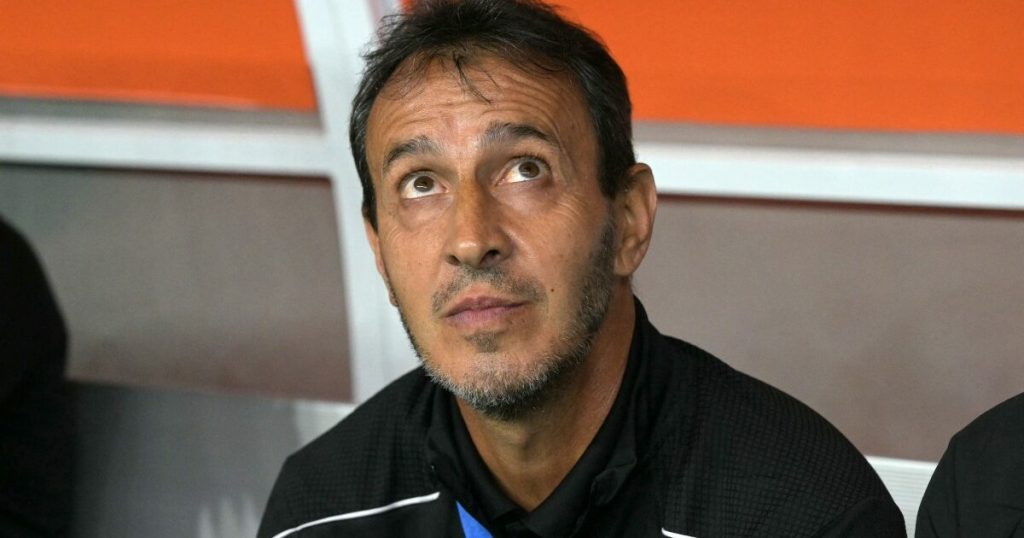Venezuela’s World Cup Hopes Dashed, Leading to Coaching Change
Venezuela’s aspirations of reaching the 2026 FIFA World Cup were dealt a crushing blow on Tuesday with a resounding 6-3 defeat at the hands of neighboring Colombia. This devastating loss extinguished any remaining hopes for the Vinotinto, as Venezuela’s national team is known, to participate in the prestigious tournament for the first time in their history. The fallout from this disappointing result was swift and decisive, culminating in the dismissal of head coach Fernando Batista and his entire coaching staff just a day later.
The decision to sack Batista came on the heels of a public call for change by Venezuelan President Nicolas Maduro. Following the demoralizing defeat to Colombia, President Maduro addressed the nation, emphasizing the need for a comprehensive overhaul of the Vinotinto’s technical staff. He called for a “restructuring,” a “reorganization of strategy,” and a revitalized “line of combat and hard work” to address the team’s shortcomings and pave the way for future success.
Batista’s dismissal marked the end of his relatively short tenure as Venezuela’s head coach. The Argentine manager had assumed the role with the ambitious goal of guiding the Vinotinto to their first-ever World Cup appearance. FIFA’s decision to expand the 2026 World Cup to 48 teams had provided a glimmer of hope for nations like Venezuela, who had long been on the periphery of international football’s grandest stage. However, the team’s inconsistent performances throughout the qualifying campaign ultimately proved to be their undoing.
The loss to Colombia left Venezuela agonizingly close to a potential intercontinental playoff spot, ultimately claimed by Bolivia following their unexpected victory against five-time World Cup champions Brazil. The Bolivian triumph, coupled with Venezuela’s defeat, underscored the fine margins that often separate success from failure in the highly competitive world of international football.
Venezuela’s struggles in the qualifying campaign were not unique within the CONMEBOL federation. Peru, another nation whose World Cup hopes had been extinguished prior to the final round of matches, also opted for a change in leadership, sacking their coach Oscar Ibanez. Peru’s dismal record of just two wins and six goals scored in 18 matches highlighted the challenges faced by several teams in the South American region.
The sacking of Batista and his staff reflects the high expectations and intense pressure associated with international football, particularly in the context of World Cup qualification. While the expansion of the tournament provided a window of opportunity for nations like Venezuela, the ultimate failure to capitalize on this chance resulted in significant consequences. The search for a new coaching staff will now begin, as Venezuela looks to rebuild and re-strategize for future international competitions. The focus will shift towards identifying a leader capable of instilling a winning mentality and guiding the Vinotinto towards their elusive World Cup dream. The road ahead remains challenging, but the hope for future success persists within Venezuelan football.


